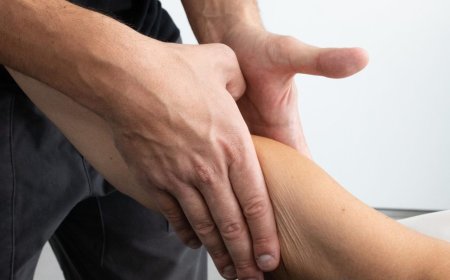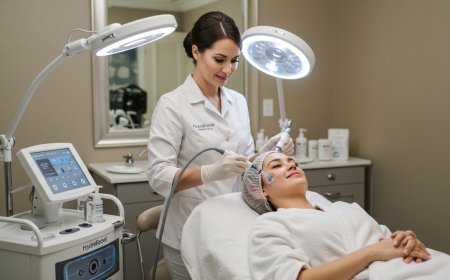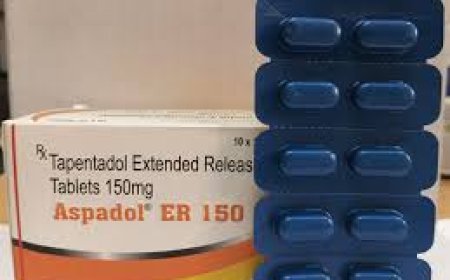Managing a Displaced Tooth: Your Essential Guide
Act fast with a displaced tooth to prevent problems. Know the steps to take and why immediate dental care ensures the best possible outcome

Dental emergencies can happen when you least expect them ,during sports, accidents, or even just a fall. Among the more distressing types of dental injuries is a displaced tooth. While it might not be fully knocked out, its movement from its natural position can cause pain, panic, and potential complications if left untreated.
This comprehensive guide walks you through everything you need to know about managing a displaced tooth: what it is, how to respond immediately, and the importance of seeking timely dental care to ensure the best outcome for your smile.
What Is a Displaced Tooth?
A displaced tooth is one that has been moved from its original position in the jaw, typically as a result of trauma. Unlike a knocked-out (avulsed) tooth, which is entirely removed from the socket, a displaced tooth remains partially attached but may shift inward, outward, or sideways.
There are three main types of displacement:
- Intrusion The tooth is forced further into the jaw.
- Extrusion The tooth is slightly dislodged from its socket.
- Lateral displacement The tooth is pushed to one side but remains in the socket.
Displacement is a serious dental injury and requires professional assessment and treatment to prevent long-term damage.
Common Causes of Tooth Displacement
Tooth displacement can occur from a variety of everyday incidents, such as:
- Contact sports (e.g., rugby, hockey, football)
- Falls or accidents at home or work
- Physical altercations
- Car or bicycle accidents
- Biting hard objects (ice, pens, bones)
Regardless of the cause, any displacement should be treated as urgent.
Immediate Steps to Take After a Tooth Is Displaced
How you respond in the minutes following dental trauma can make a significant difference in whether the tooth canbe saved.
Heres what you should do:
- Stay calm: Its easy to panic, but staying composed helps you act effectively.
- Do not force the tooth: Avoid forcing the tooth: Dont attempt to push it back into place. Gentle repositioning may be possible if it's only slightly shifted, but any resistance means you should stop.
- Apply a cold compress: This can help reduce swelling and discomfort around the injured area.
- Control bleeding: Use a sterile gauze or clean cloth to apply gentle pressure.
- Avoid chewing on the injured side: This prevents additional damage.
- See a dentist immediately: Contacting anemergency dentist in Twickenhamwithout delay improves the chances of successful treatment and recovery.
Why Prompt Dental Care Is Crucial
A displaced tooth may appear stable at first glance, but beneath the surface, damage to the periodontal ligament, nerve tissues, or root may be present. Prompt intervention from a dentist in Twickenham can:
- Realign the tooth safely and stabilise it
- Reduce the risk of infection
- Preserve the root and surrounding bone structure
Time is a key factor. Ideally, you should see a professional within an hour of the incident.
What to Expect at the Dental Appointment
Upon visiting a dental clinic, heres what the care process typically involves:
|
Stage |
What Happens |
|
Examination |
The dentist will assess the tooth's position, take X-rays, and check root health. |
|
Repositioning |
If needed, the dentist will gently guide the tooth back into proper alignment. |
|
Splinting |
A soft splint might be used to support the tooth by attaching it to the neighbouring teeth. |
|
Root Canal (if required) |
Damage to the tooths nerve or pulp may lead to the need for root canal treatment. |
|
Follow-up Monitoring |
Regular visits ensure healing is progressing and no complications arise. |
Throughout this process, an emergency dentist in Twickenham can help manage pain, control infection risks, and answer any questions about your recovery.
How to Care for a Displaced Tooth During Recovery
Post-treatment care is critical to supporting the healing process and ensuring the tooth reintegrates properly.
Here are essential aftercare tips:
- Eat soft foods: Avoid anything hard, crunchy, or sticky for at least a week.
- Avoid touching the tooth: Tongue or finger contact can disturb healing.
- Use prescribed medication: Pain relief or antibiotics may be provided.
- Brush gently: Maintain oral hygiene, but be cautious around the affected area.
- Rinse with salt water or antiseptic mouthwash: This helps minimise infection.
- Attend follow-up appointments: Regular monitoring allows thedentist in Twickenhamto detect any delayed issues like root resorption.
Video Link -Looking for a Private Dentist in Twickenham? Book Today!
Potential Complications to Watch For
Even with prompt care, its important to monitor for the following signs that could indicate complications:
- Increased sensitivity or pain
- Tooth becoming darker in colour
- Loose or mobile tooth
- Swelling or discharge around the tooth
- Difficulty chewing
If any of these symptoms arise, dont wait, book another appointment promptly with your dental provider.
Long-Term Outlook for Displaced Teeth
How successful the treatment of a displaced tooth is can vary based on different important factors.
- How soon treatment was received
- The direction and extent of displacement
- Age and general oral health of the patient
- Proper aftercare and follow-up
In many cases, the tooth can fully recover. However, in some situations, long-term treatments such as a crown or even a dental implant may be required later if the tooth loses vitality. In either scenario, staying under the care of a knowledgeable team can make a significant difference.
Preventing Tooth Displacement in the Future
While not all accidents are avoidable, you can reduce the risk of future displacement by following these preventive tips:
- Wear a custom mouthguardduring sports or high-impact activities
- Never use teeth as toolsto open bottles or packages
- Visit your dentist regularlyfor check-ups and early detection of gum issues or weakened teeth
- Maintain strong gums and boneswith a healthy diet rich in calcium and vitamin D
Prevention is always better than cure, especially when it comes to your teeth.
Conclusion
A shifted tooth can be distressing, but acting swiftly and correctly can be the key to preserving it rather than losing it.Each stage, from immediate care to expert treatment and healing, plays a crucial role.
Be it due to a fall, accident, or sports injury, getting timely dental care is the most effective response. Timely assessment and treatment not only protect your smile but also help prevent long-term complications. For those in Twickenham, expert dental teams are ready to help restore your confidence, comfort, and oral health when dental trauma strikes.

































